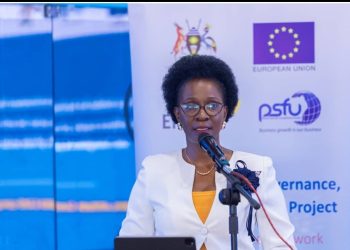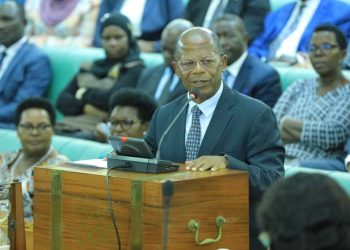Over 15 million Ugandans have not secured national identity cards (IDs), the state minister for internal affairs, Obiga Kania, has said.
These Ugandans are at risk of missing out on key government services that require the possession of a national ID. According to Kania, of the 40 million Ugandans, 24 million have been registered and assigned National Identification Numbers (NINS) by the National Identification and Registration Authority (NIRA).
“These 24 million Ugandans will carry their NINS for the rest of their lives. Their data is now available for various agencies to use under a synchronized government data management system,” the minister said.
He said the number includes 6.2 million pupils and students aged (six16), whose registration was jointly done by the education ministry and has since been assigned NINS. The issuing of National IDs started in 2017.
To get a national ID, one needs a letter from the LC1, indicating the applicant’s citizenship, tribe, clan and parents’ details (names and particulars such as dead or alive). A copy of either parent’s national ID, personal identification documents, such as birth certificate, driving permit or passport.
Addressing the press on his ministry’s implementation of the National Resistance Movement manifesto yesterday at the Prime Minister’s Office in Kampala, Kania said the data with NIRA is a microchip with details of every registered Ugandan, which cannot be easily forged.
He said registered Ugandans with national IDs will no longer be required to go through the tedious process of filling forms when applying for a passport. According to the minister, the data with NIRA will be used during applications for passports and the applicant will do a short verbal interview, which will make the process much faster.
Early this year, NIRA asked Ugandans who had never registered to go to their sub-county headquarters for registration. The move was meant to take services closer to Ugandans who had not been able to access them at the district offices.
The activities included national ID replacement, registration, and issuance, the rectification of data, such as images that never met the International Civil Aviation Organisation (ICAO) standard and documents that may not have been properly scanned.






























































